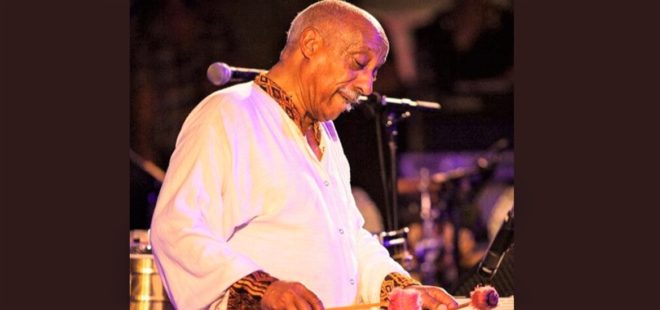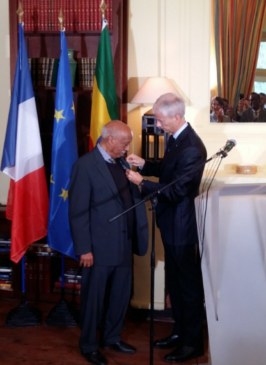Godfather of Ethiopian Jazz back in the studio

These days, one of the world’s great bandleaders is dedicating his energy and time to giving African traditional music its rightful place in the world
“I was doing world music 42 years ago, long before it became a genre,†says the Ethiopian composer and performer Mulatu Astatke during a recording session in Nairobi last week.
The 67 year old is credited with successfully fusing Western jazz and funk with traditional Ethiopian folk melodies, and elements of music of the ancient Coptic Church. “I became a student of jazz composition and combined that knowledge with Ethiopian music to give birth to Ethio-jazz,†he says.
For the last few years Mulatu has been producing an opera using ancient church music by the Ethiopian composer, scholar and pioneer of musical notation, St. Yared, who created chants for church services and celebrations.
“The composition includes choirs, strings, trombones and an ancient conducting stick called the mekwamia. It has been a big challenge but I want to see what people will say,†says Mulatu.
The plan is to have the opera eventually performed at one of Ethiopia’s holiest sites, Lalibela, famous for its rock-hewn Orthodox churches.
The first section of the opera premiered at Harvard University’s Sanders Theatre two years ago while Mulatu was attending an academic Fellowship to research and develop the krar, a bowl-shaped six-string lyre made of wood, cloth and beads
He says young African musicians tend to opt for the guitar because instruments like the krar are limited in range. This process of development increased the strings to 8 and ultimately to 12, offering a dramatic improvement to the versatility of the instrument.
However the successful upgrade of traditional instruments must be done in tandem with the acquisition of new skills. “ The musicians who have played these instruments for years also need to develop their mind and thinking so that they can be better suited to contemporary times,†says Mulatu.
Indigenous instruments
He is full of admiration for what the West Africans have accomplished with the kora music, whose score was adopted in the 1970s and is now widely used by modern players.
Source: Africa Review



